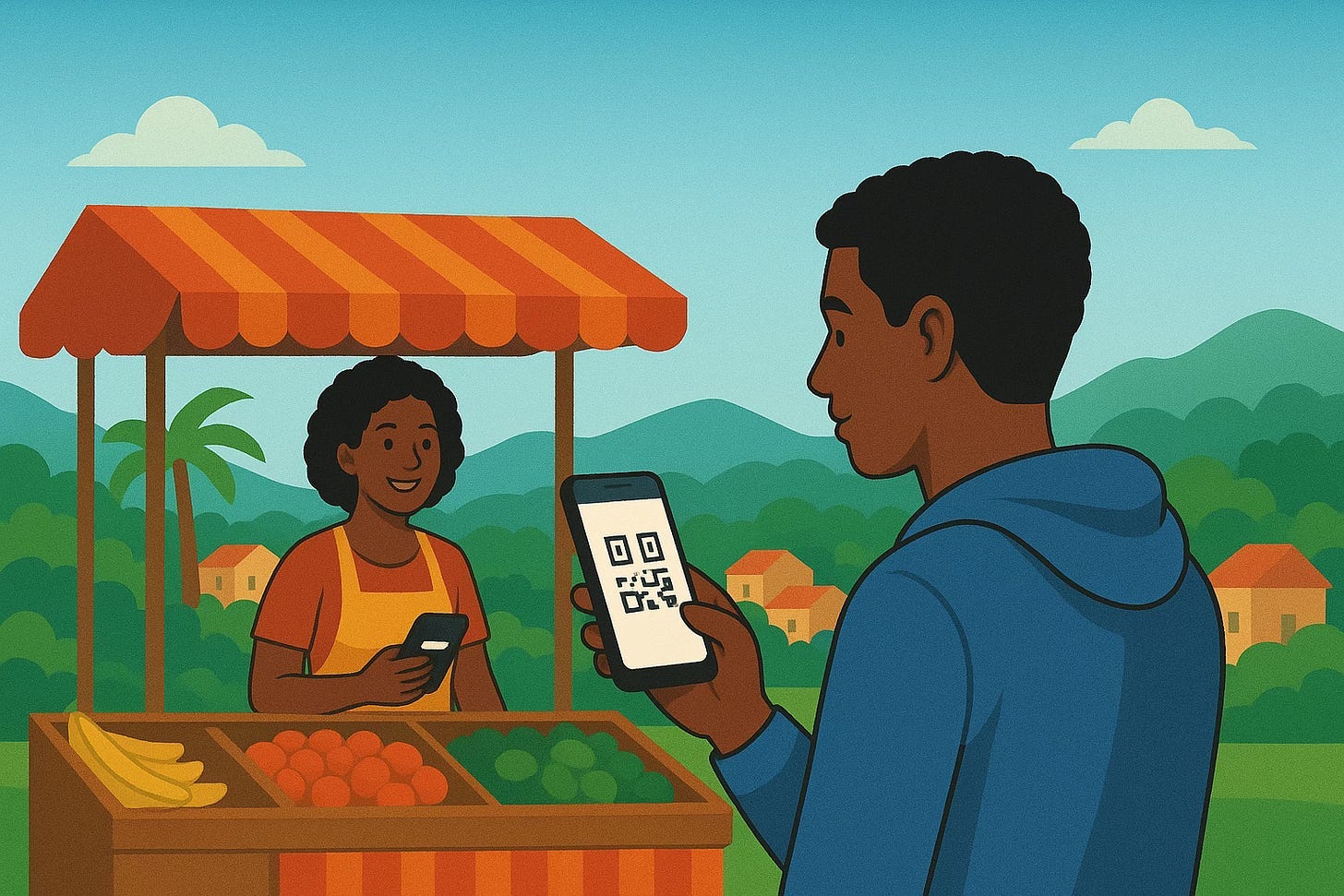Caribbean Fintech: From Transactions to Transformation
BimPay can move money, but how can Barbados and the region use it to power transformation?
It's not often I get to nerd out about payments and fintech in my birthplace. The Caribbean has often lagged behind markets like Brazil and Southeast Asia, but BimPay may change that. It’s Barbados's national payments system that launches in March 2026.
BimPay aims to deliver instant, 24/7 payments that are mobile-first and don't require a traditional bank account. This is a genuine game-changer for financial inclusion in a country where in-person transactions still dominate, and across a region where financial services are often slow and burdened by high fees.
For consumers, you can pay for everything from groceries to utilities to rent using just your phone, just like how they manage their day-to-day life on WhatsApp. Having used instant payments regularly in Europe, I can attest to how transformative this becomes once embedded in everyday life.
For businesses, that cash-only vendor can now accept payments instantly with no fees or card processing costs, again using just their mobile phone. Secondary benefits include improved safety, reduced theft risks, and better record-keeping from handling less cash.
Building Beyond Payments: The Bigger Opportunity
Imagine a local university student who builds an app that helps fishermen not just accept BimPay payments, but also track sales patterns to offer automated savings for lean months.
Or consider a Caribbean fintech like Onest using transaction data to provide income-based microloans with underwriting models trained on Caribbean spending patterns, finally giving informal workers long overdue access to financial services.
Similar to Singapore's current status as a powerhouse even with its small physical size, for Barbados, weekend hackathon projects could grow into Caribbean fintech success stories, but only if the infrastructure enables this level of innovation.
The Technical Foundation for Innovation
When Brazil launched Pix in 2020, instant transactions quickly became a baseline expectation for the (now 150 million) people using it, much like the immediacy of accessing electricity or water.
But Pix wasn’t just about speed. From day one, its design intentionally fostered a robust ecosystem and technical foundation to support innovation and exploration. For BimPay, this implies a need for:
Open APIs that equip developers with the tools to build innovative solutions on top of BimPay, empowering entrepreneurs to create customized, locally relevant fintech applications that solve Caribbean-specific problems.
Transparent Licensing & Regulatory Clarity that ensures non-bank players and startups can access the system through clear, fair requirements, leveling the playing field for businesses of all sizes, just as Brazil's Pix revolutionized payments by granting small vendors and startups the same access to payment infrastructure as incumbent banks.
Test Environments, enabling developers to test prototypes and emerging payment solutions in realistic scenarios without using real funds or live data. This complements the existing Regulatory Sandbox, which allows companies to pilot with real users but carries higher setup costs and exposure risks. Simulation environments provide a crucial first step for early-stage experimentation before reaching the Regulatory Sandbox.
In smaller markets like Barbados, where startup resources and user bases are more limited, lowering barriers is especially critical. It accelerates validation cycles, reduces the cost of experimentation, and ensures that innovative ideas can be tested, refined, and brought to market without being stalled by infrastructure or regulatory complexity.
This environment could unlock a wave of new fintech apps, lending models, and loyalty systems, delivering outsized value to consumers, businesses, developers, and the broader economy.
Leading the Caribbean into the Future
Barbados is primed to quickly become a regional leader in financial infrastructure. In addition to BimPay, the island is slated to launch cashless payments for public transport this year as well.
Beyond just Barbados, the broader opportunity is with regional integration and interoperability. The region has a unique opportunity to leapfrog the interoperability challenges that have hindered financial infrastructure in other regions.
This push for connected payments is especially timely, given the region’s renewed ambitions for mobility of goods, services, and people driven by the CARICOM Single Market and Economy (CSME). Other initiatives like reducing cross-Caribbean roaming charges and improved regional travel options all contribute to that broader interconnected vision.
From Rails to Movement
The question isn't whether BimPay can move money, it's whether we will seize the opportunity to transform a payment system into a fintech ecosystem.


